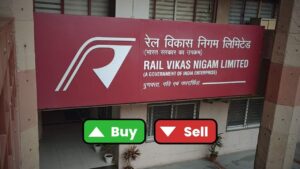The future of food production is undergoing a profound transformation, driven by the convergence of artificial intelligence (AI) and automation. These cutting-edge technologies are revolutionizing how food is manufactured, addressing the urgent need for sustainability in an industry facing environmental and resource challenges. As global food demand continues to rise, the integration of AI and automation into food systems is shaping a more sustainable, efficient, and resilient future, offering solutions to reduce waste, optimize resources, and enhance production quality.
Mohan Valluri stands out as a visionary at the top of the field, blending his expertise in advanced technology with a commitment to environmental sustainability. With a background in sustainable innovation and a career dedicated to advancing automated processes, Valluri has consistently championed solutions that align productivity with eco-consciousness. His previous accomplishments have set the stage for transformative approaches in food manufacturing, focusing on data-driven strategies that streamline processes while reducing environmental impact.
The focus of Valluri’s work has been on the development of a new approach to food production aided by AI and automation. One major area of interest is in application of big data in reducing food wastage. His approach of using AI systems that enhance the understanding of consumption patterns and the accurate predictions of demand, helps manufacturers avoid overproduction and consequently, save resources as well as the amount of carbon emissions linked to food waste. This precise approach not only synchronizes production with demand but also plays an effective role in minimizing the environmental cost of excessive stock and spoilage.
Moreover, he utilizes automation to optimize resource use across various production stages, from water conservation to energy efficiency. “Automated systems allow for precision in managing every step of the manufacturing process, from cleaning to packaging, ensuring minimal resource usage without sacrificing product quality” he mentioned. By integrating real-time monitoring, these systems can instantly adjust to any inefficiencies detected, further enhancing resource conservation efforts. This automation enables continuous operation with minimal resource waste, a key factor for achieving sustainable production on a large scale.
Change is not limited to the Valluri’s company or its clients; it has a broad effect. Besides enhancing the manufacturing process, these AI and automation systems help in achieving the objectives of cutting emissions of greenhouse gases and encouraging sustainability. This way, his approach of concentrating on sustainable manufacturing also answers consumer’s call for accountability and traceability in food manufacturing. His passion for reducing the carbon footprint in food production remains a noble goal that is understood well by the industry and the public in general.
Looking to the future, he envisions an industry where AI and automation drive a sustainable food ecosystem. The work underscores the transformative potential of these technologies, not just in streamlining processes but also in reshaping the food industry’s approach to resource management and environmental responsibility. By advocating for AI-driven sustainability, he is building a future where innovation and eco-consciousness coexist, guiding the food manufacturing sector toward a more responsible and sustainable model.
As food production continues to evolve, the key will be balancing technological advancements with sustainable practices. Through his pioneering work, Valluri demonstrates that with the right blend of innovation and environmental stewardship, the food industry can meet rising demands while protecting the planet for generations to come.












